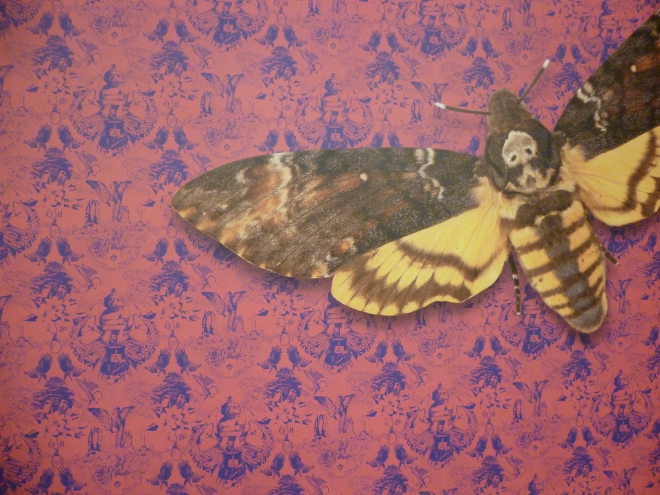 What are your thoughts about death? Do you think of it freely, with curiosity or turn from it with dread? The current exhibition at Bristol Museum and Art Gallery invites us to face our fears and explore the myths and realities surrounding our eventual expiration.
What are your thoughts about death? Do you think of it freely, with curiosity or turn from it with dread? The current exhibition at Bristol Museum and Art Gallery invites us to face our fears and explore the myths and realities surrounding our eventual expiration.
death: the human experience is an unexpectedly beautiful, contemplative exhibition, displaying archaic associations with death (from an exquisite death’s head hawk moth to a Victorian mourning dress. There are insights into burial practices across the world, including a piece on ‘sky burials’, examples of items left at gravesides and buried with the deceased, and a cheeringly rambunctious Ghanaian coffin shaped like a lion.
You can listen to funeral and mourning songs from a variety of cultures, admire memorials intended to honour the dead or display how well they were loved, and perhaps reconsider or identify your own attitudes to these rituals, and what’s important to you personally.
The subject matter is handled sensitively and thought-provokingly, with special separate sections where you can consider darker aspects such as infant mortality and cannibalism, with small doors to open on exhibits that may be especially distressing. For me the mortuary table from a former Bristol hospital was a more sobering sight – something about its clinical contours just seemed very cold. There are also videos of commentaries for and against assisted suicide, which tackles the important issue of quality of life.
Whatever your feelings on death when you enter, I think you’ll emerge able to speak about death more readily – this is an aspect of life we’ll all experience at some point, whether as the deceased or as a mourner, and being able to talk about it can only help.
As the Mark Twain quote emblazoned on one wall states: “I do not fear death. I had been dead for billions and billions of years before I was born, and had not suffered the slightest inconvenience from it.”
What a curiously comforting idea.
death: the human experience runs at Bristol Museum and Art Gallery until 13 March 2016. Visitors are invited to pay what they feel the exhibition is worth.
To submit or suggest a review, please send an email to judydarley (at) iCloud.com.
